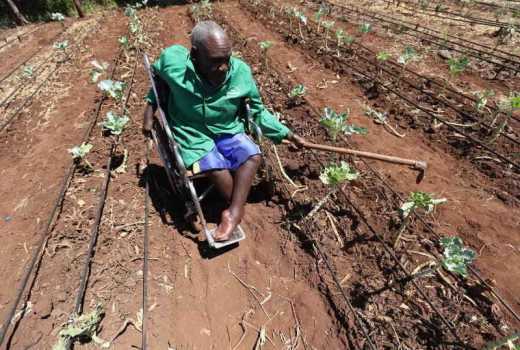×
The Standard e-Paper
Kenya’s Boldest Voice

?There are farmers and there is Charles Osawa. Though he uses a wheelchair, Osawa is proving that with determination, hard work and resilience, all things are possible.
At the heart of Kware village in Kisumu County, lies his mixed farm. He grows vegetables and also keeps dairy goats. His impressive farming activities against many odds earned him the 2017 Farmer of the Year Award. He beat more than 84,000 farmers registered under the African Farmers Club (AFC).